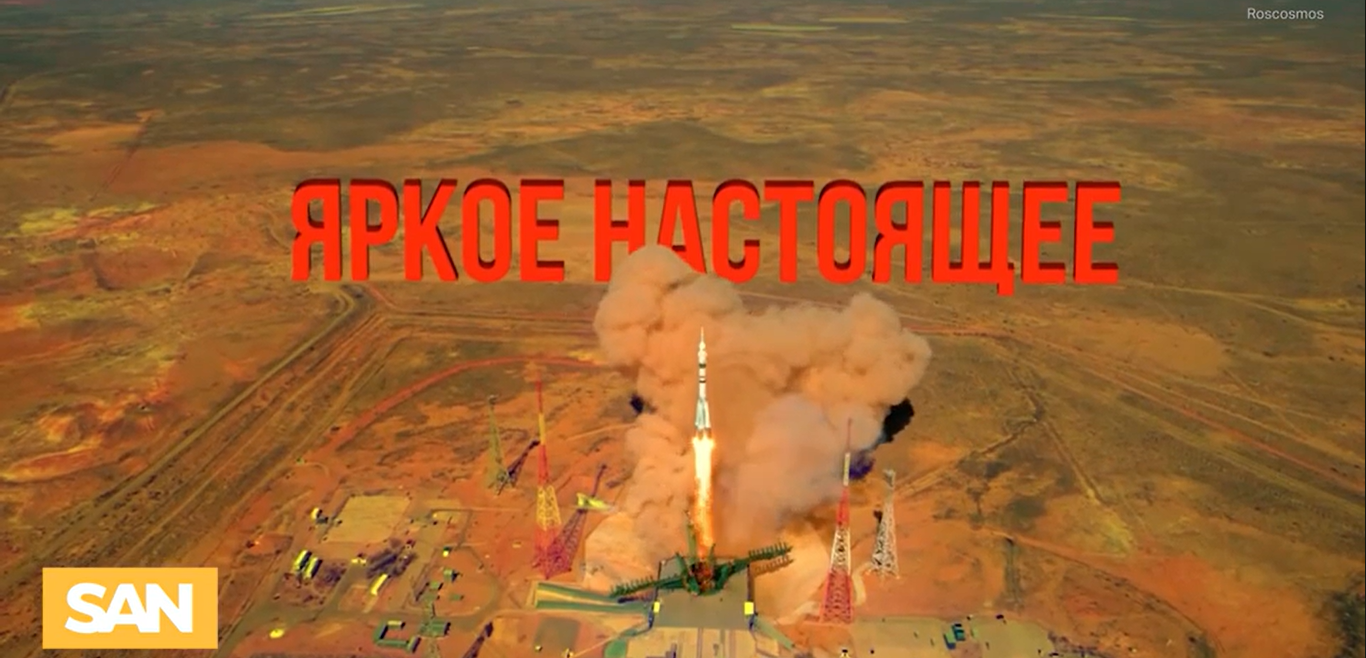Russia is preparing to launch over 100 satellites by the end of the year in a strategic effort to reduce Ukraine’s battlefield advantage in drone warfare, according to senior Russian officials and state media. The move signals a significant expansion of Moscow’s military space capabilities as both nations increasingly rely on aerial surveillance and unmanned systems in their ongoing conflict.
Yuri Borisov, head of Russia’s state space agency Roscosmos, announced the satellite initiative on Monday. Speaking at a conference in Moscow, Borisov stated that the satellite launches would be part of a broader campaign to enhance Russia’s real-time battlefield reconnaissance and improve communication links for its armed forces. “We plan to launch more than 100 satellites this year alone,” Borisov said, adding that the goal is to “significantly increase the capabilities of our orbital group.”
The satellite expansion comes as Ukraine has effectively used drones for precision strikes, intelligence gathering, and surveillance, giving it a tactical edge despite being outgunned by Russia in other areas. Ukrainian forces have utilized both commercial and military-grade drones, often supported by Western intelligence and satellite imagery, to identify and strike Russian positions.
In response, Moscow is seeking to close the gap by deploying a dense satellite network that can deliver real-time imaging and data to Russian commanders. Borisov noted that the aim is to provide “online” intelligence for mobile units on the ground, enabling more coordinated military operations. He also suggested that private Russian space firms would contribute to the effort under state oversight.
Military analysts say the rapid buildup reflects Russia’s recognition that space-based assets are now essential in modern warfare. The satellites, expected to include both optical and radar imaging systems, will allow Russian forces to detect troop movements, guide artillery, and counteract drone attacks with greater efficiency.
Currently, Russia lags behind NATO countries and private Western firms in terms of satellite coverage and data accessibility. Ukraine has benefited from near-constant surveillance provided by U.S. and European satellite networks, along with real-time geospatial intelligence from companies like Maxar and Planet Labs.
The Kremlin has faced increasing challenges on the battlefield as Ukrainian drones have struck deep inside Russian-held territory and even across the border. Russia’s renewed focus on space technology signals its intent to mitigate those vulnerabilities and reassert a technological balance.
U.S. officials have acknowledged Russia’s growing investments in space-based military infrastructure but have expressed concern over the potential militarization of low Earth orbit. Washington has previously accused Moscow of developing anti-satellite weapons, including ground-based lasers and orbital systems capable of disabling other satellites.
Borisov denied any such intentions, emphasizing that the new satellite program is defensive and purely focused on reconnaissance. However, the large number of planned launches and the acceleration of military-space integration have prompted speculation that Russia could be positioning itself for longer-term strategic capabilities beyond the Ukraine conflict.
In addition to reconnaissance, the satellites are expected to bolster secure communications for Russian troops operating in contested areas, where GPS jamming and electronic warfare have become common. Improved satellite communication may allow more effective command-and-control over dispersed units, especially in regions where infrastructure is limited or destroyed.
As the war enters its third year with no clear resolution in sight, both sides are leaning heavily on technological innovation to gain battlefield superiority. Russia’s satellite initiative underscores the increasing convergence of terrestrial and space-based warfare, and may trigger new debates over the role of space in international security frameworks.
Whether the plan succeeds in offsetting Ukraine’s current drone advantage remains to be seen. But with over 100 satellites set to launch, Russia is making a clear bet on space as the next critical domain in its war effort.
Source; Straight Arrow News (SAN)



